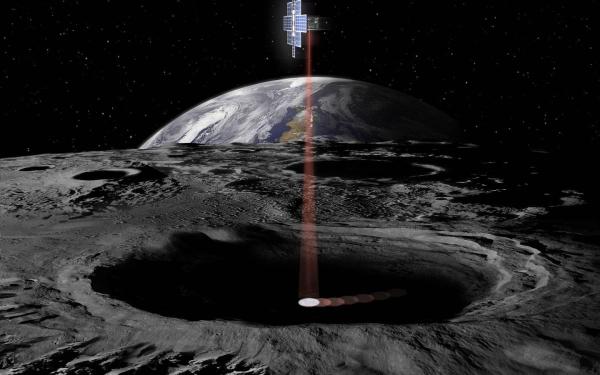
Glenn Lightsey
John W. Young Chair
Daniel Guggenheim School of Aerospace Engineering College of Engineering
Glenn Lightsey’s research focuses on the technology of small satellites, including space exploration, propulsion, satellite operations, Earth monitoring, and space systems engineering.
Glenn Lightsey’s research focuses on the technology of small satellites, including space exploration, propulsion, satellite operations, Earth monitoring, and space systems engineering. He has experience in systems design and optimization as well as flight mechanics and controls. Lightsey earned his Ph.D. in aeronautics and astronautics from Stanford University. He likens this exciting era of moon exploration — such as Artemis 1— to the stuff of science fiction novels that aerospace engineers dream about. Lightsey has authored and co-authored more than 140 technical articles and publications. He is an American Institute of Aeronautics and Astronautics Fellow and a founding member of the AIAA Small Satellite Technical Committee. He is associate editor-in-chief of the Journal of Small Satellites.
News and Recent Appearances
How can there be ice on the Moon?
The Conversation
No one knows yet how much water the Moon has or how deep it goes. But one thing is certain: There’s much more than scientists first thought. In a series created for children of all ages called, "Curious Kids," and published in The Conversation, School of Chemistry and Biochemistry Regents' Professor Thomas Orlando, School of Earth and Atmospheric Sciences Assistant Professor Frances Rivera-Hernandez, and School of Aerospace Engineering Professor Glenn Lightsey discuss how scientists confirmed there is water on the moon and the careful steps we must take to access it.
https://theconversation.com/how-can-there-be-ice-on-the-moon-225979
Georgia Tech to Strengthen Nation’s Faculty Development in Geospace Science
To the Moon, Back and Beyond: Why the Moon Matters
GA Tech
I think of the Apollo program as more of a backpack trip. Just like hikers, the astronauts took everything with them and brought it back.
The Apollo missions also didn't have a succession plan. It was an incredible story and achievement, but no one was ready for the next step.
Georgia Tech professor ready to see his work blast off toward the moon
11Alive
Dr. Glenn Lightsey worked with a team that developed the propulsion system for one of the satellites onboard Artemis One. Those satellites will help the unmanned space mission collect new information about the moon.
https://www.11alive.com/article/tech/science/georgia-tech-professor-artemis-one…
CubeSat on Artemis I Uses Georgia Tech Propulsion System
School of Aerospace Engineering
All eyes will be on the sky as NASA’s Artemis I mission launches from the Kennedy Space Center in Florida. Georgia Tech David Lewis Professor of Space Systems Technology, Glenn Lightsey, and his team developed the propulsion system for the small satellite BioSentinel that will be onboard the Space Launch System (SLS) megarocket.
https://ae.gatech.edu/news/2022/08/cubesat-artemis-i-uses-georgia-tech-propulsi…

